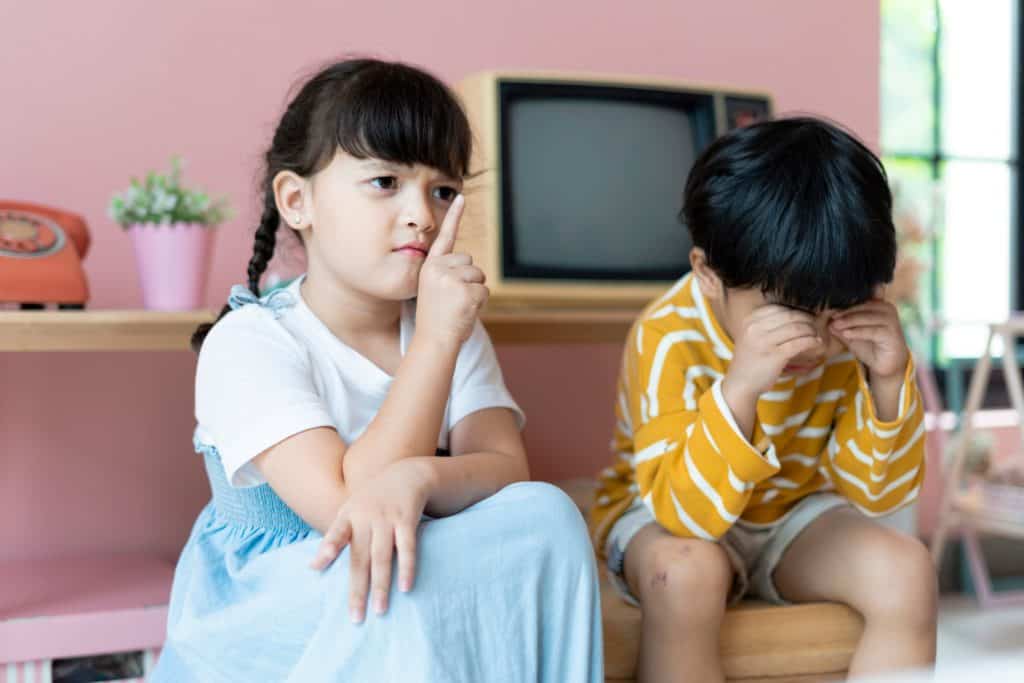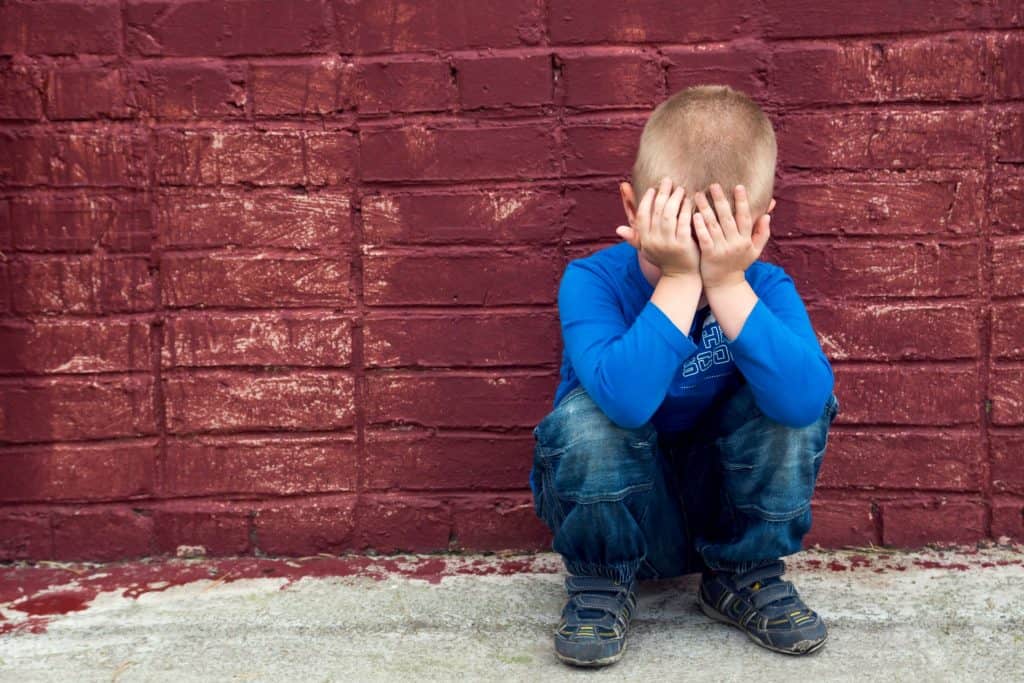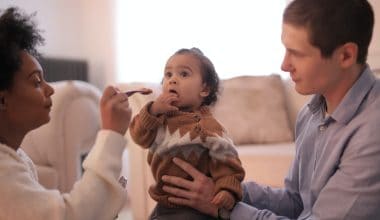Children don’t really mean to be difficult or disrespectful, but they are inexperienced. It’s your job as a parent to help them grow into their best selves through your love, patience, and discipline.
It’s always scary when you start noticing that your 4 year olds’ behavior is getting worse – especially if the behavior in question doesn’t seem like something they’ll grow out of! A lot of these problems can be dealt with by a firm but gentle hand, though it can be hard to identify just how you can best intervene as a parent.
- Children are expected to talk back or reason out, but it should be constructive, not disrespectful. They also shouldn’t ever ignore the punishments you give them.
- Children are expected to talk too much about things that excite them, but they shouldn’t demand attention and must respect the other person’s time.
- Children are expected to play a bit rough, but they should learn to be considerate of others. It’s a bad sign when they begin to ignore or even justify their bad behavior.
- Children are expected to hesitate or even tell white lies if the truth would get them punished. They shouldn’t make it a habit to lie all the time just to get their way.
- Children are expected to worry a lot about socializing with others. It’s worrying when they insist on self-isolation or start developing physical symptoms from the stress.
If your 4 year old’s bad behavior is something they can outgrow with guidance, let them do so at their pace. If it’s the sort of problem that needs a firm hand, be sure to address it as soon as possible.
4 Year Old Behavior Getting Worse (Should You Be Concerned?)
If They’re Getting Too Argumentative with You
Arguments are a normal part of life – especially for children still developing proper discipline and effective impulse control. Children can get too argumentative for their own good, spending more energy talking and complaining than they do listening and learning.
That said, parents have their own biases here, and shouldn’t decide where their child falls on this scale – at least, not through their perspective alone.
Below are a few telltale signs to differentiate normal child rebelliousness from overt disrespect.
What to Expect Here
4 year old behavioral management comes with a lot of challenges. They don’t like getting in trouble, being told that they were wrong, or being forced to apologize.
A misbehaving 4 year old is likely to put up some resistance to your efforts in order to salvage their wounded pride. Pressing on this – forcing them to apologize on your terms – will only lead to more resistance and less actual learning.
Always remember that a quiet 4 year old isn’t necessarily being obedient. They might have just learned that you aren’t willing to meet them halfway.
Finally, an arguing 4 year old isn’t a bad sign. It means that your child can stand up for themselves, even against people in a position of authority over them.
Don’t push them to drop arguing altogether, because you’d be paving the way for others in positions of authority to take advantage of your kid’s compliance in the future.
When You Ought to Worry
The problem to watch for here is when it ceases to be a conversation. A 4 year old’s arguments are only sound if they practice sensible reasoning, maturity, and patience when elaborating on their arguments.
If they’re just arguing for the sake of being right or to agitate someone, it’s a sign that your 4 year olds behavior is getting worse.
Try to convince your 4 year old why their reasoning is problematic, rather than declaring it is just because you happen to have authority over them.
Some kids can take arguments personally, moving towards overt disrespect rather than discourse. They can turn away while you speak to them, cut you off mid-explanation, or even call you names. This becomes especially problematic if they try to justify their behavior against you!
Another thing to be mindful of is when they choose to totally disregard the consequences of their actions. While your child has the right to contest your perspective, they can’t just up and ignore their punishments just because they disagreed with them.
Your child had to right to act the way they did, but they have the responsibility to hold themselves accountable. Letting them be would just perpetuate this problematic behavior, and there’d be nothing to stop them from doing the same to others in their life.
Don’t ever let your child dodge consequences, as they won’t ever learn when to draw the line.
If They Keep Interrupting Busy People to Talk
Children can get pretty excited about things, gravitating towards loved ones to share whatever new, wonderful thing caught their attention.
It’s adorable, but sometimes their enthusiasm can get out of hand – they can start acting rudely to others, demanding time and attention they aren’t entitled to. They might start cutting others off or continue talking over people who were speaking, which won’t make for an endearing impression.
What to Expect Here
A child’s enthusiasm is more than welcome. They can talk your ear off for hours, and may not even notice when the person they’re speaking to has lost interest in the discussion.
They’re still figuring out boundaries and developing impulse control and might be prone to babbling about strange things. That’s just part of being a child, amazed by bits of the world.
It’s normal if your child struggles to wait their turn to speak. What matters most here is that they’re trying their best to be considerate of others rather than pushing others to accommodate them.
You can trust your child to grow out of this with just a bit of guidance. They’re doing their best right now, even when it’s difficult, and their impulse control will get a lot better in time!
When You Ought to Worry
The problem here comes when your child starts getting pushy. They might demand attention to speak, even if the person they’re talking to is occupied or otherwise busy with something else.
Your child has to understand that they aren’t entitled to anyone else’s attention. They’re expected to wait their turn to talk, rather than kick up a fuss to get what they want. Enthusiasm is great, but it should never be used as an excuse to justify rude behavior.
Some kids might also act out to get attention – occasionally in pretty annoying ways. They may sigh, grumble, or loudly tap on things to convey their impatience.
Other children can take being forced to wait even worse, letting their immediate impulses dictate how they handle the situation.
They might start whining over their frustration at being “ignored”, try to get rid of what’s occupying the person they want to speak with (i.e. grabbing their phone while they’re on a call), or even start lashing out and breaking things in a bid to be noticed.
These cases will need, at minimum, a serious discussion. In the event these means fall short, you may want to consider Parent-Child Interaction Therapy to safely navigate these family issues.
If They Start Playing Too Roughly with Friends and Family
People can recognize their own boundaries implicitly but may have a hard time articulating them. The easiest way to find these lines – at least, for most children – is by pressing on them!
Your child is still learning what is and isn’t acceptable to others. This process can get a bit clumsy, and they may miss a few signs early on. What matters here is that they recognize that these boundaries exist with others – even the ones that they don’t fully understand.
What to Expect Here
A bit of roughhousing is fine, and honestly a few fights here and there are inevitable. Making mistakes is part of the process – but accepting them despite knowing better certainly isn’t!
Your child needs to learn from the mistakes they made, recognize when they hurt someone, and strive to do better by them moving forward. They’ll be fine so long as they’re putting in a genuine effort to be gentler with others than they had been in the past.
If your 4 year old is behaving hurtfully but doesn’t understand that they are, try to get them to empathize with the person they hurt. Share that person’s perspective as openly as you can, and work to explain it in terms your 4 year old can digest.
Maybe your child doesn’t get why the other person cried just because they pushed them. Explain what happened after that person got pushed, and how they might have gotten hurt. Your child needs to understand the full scope of their actions – not just what they intended to do at the time.
Your child knows what they did wrong, but they may not recognize what exactly made it wrong. Discipline alone won’t cut it – you need them to empathize with the person they hurt.
When You Ought to Worry
It’s a problem when your child knows that they’re hurting someone but chooses to do so anyway. It shows that they’re giving in to their impulses and anger. In some extremely problematic cases, they may even try to justify these lapses (i.e. “I wouldn’t have hurt him if he did X when I asked!”).
Justifications can be understood, but can’t be accepted. The main point here is that they made a mistake, and excusing them absolves them of the need to improve as a person. Make sure that your child knows that they are responsible for their reactions as much as their actions.
You need to be especially mindful of this issue if your child is playing with people younger than them – that person might not be able to effectively share how they’re being mistreated. Playdates that turn out this way often permanently burn bridges if left unchecked.
If They Start Lying to People
Lies can be seen as a convenient out for people in trouble, but mistakes – and the consequences that follow – have to be acknowledged so we can all grow as people.
The truth doesn’t always set you free: for most children, they’d just get in even deeper trouble! Don’t let your child get away with lies, but ensure that your child feels safe telling the truth to you.
What to Expect Here
Your child might hesitate to tell the truth at times, occasionally delaying their response on the off-chance you might let them off the hook. This behavior is perfectly understandable, as people can recognize their mistakes while still struggling to admit them to others.
They may even tell white lies – lies told to avoid hurting people – from time to time. For example, telling your mom that breakfast tasted amazing (when it was anything but!) is a white lie.
When You Ought to Worry
Constant lying builds character. This might even progress to the point that your child instinctively lies to appease others when placed in difficult situations. Lying isn’t good, but impulsive lies are even worse – and your child may not even be able to control these tendencies entirely!
You want your child to be honest, don’t you? Honesty only comes when people feel safe. Telling your child to admit the truth, only to yell at them for it, doesn’t teach your child discipline. It only teaches them to be smart about how they lie to you.
If your child gets caught in a lie, your goal here isn’t to teach them that lying is wrong – they already know that! You’re aiming to convince them that lying is totally unnecessary. They should feel comfortable being honest with you. The last thing this situation needs is misdirected anger.
That doesn’t mean they get a pass for lying to you, though.
The penalty here is about dissuading them from future lies. Don’t let them get what they want, or at least make them work harder to get it. You’re not trying to scare them into compliance here.
For instance, if your child lied about fixing their bed march them back into the room to do it right – make them fix your bed while they’re at it too! You want it to sink in that lying won’t get them what they want, so make sure your punishment reflects the crime rather than your anger.
If They Start Refusing to Socialize
Socialization is sorely needed for success. Some people are naturally more inclined to this than others, but everyone needs to learn enough about this topic to at least get by in life.
Your child may not develop these skills at the pace you’d prefer – they may not even get the hang of socializing with others altogether! What matters is that they can pick up enough to make their own lives easier when it comes to dealing with people outside of the family.
What to Expect Here
Theoretical prep work just won’t cut it, and social skills are sadly not inheritable. Even if you were great with people, your child may have a tough time here – remember that it’s not their fault!
This struggle to socialize may be due to anxiety. They want to make a good impression, or at minimum not get rejected. Not everyone is ready to handle the stress from this quite yet. This anxiety may also compound if your child has had limited experience with people their own age.
While you shouldn’t let your child sequester themselves from the world, you need to understand that your child might have a hard time here.
Trying and succeeding are one and the same in this situation. Your child needs to be brave enough to keep doing their best, but they won’t want to if you force them to work at your pace instead of theirs!
When You Ought to Worry
Your 4 year old’s behavior is definitely getting worse if they’re starting to separate themselves from others entirely! It’s okay if your 4 year old has a hard time socializing. It’s okay if they aren’t succeeding the way they want to, but it’s not okay to just let them give up on interacting with others altogether!
There’s a big difference between refusing to socialize and actively isolating yourself from the world at large.
Your child might feel so anxious socializing that they’d shut themselves out entirely, ignoring people who approach them. This anxiety can get so bad that your child may even develop physical symptoms here, such as palpitations, trembling, or even stress vomiting in some cases.
If your child would rather shut everyone else out, give them time and space but plenty of encouragement. You can’t force them to socialize when they’re totally against the idea.
It’d be like yanking them out of their room. You’d just be dragging someone out of their comfort zone, kicking and screaming. You’d be disregarding their boundaries, agitating their anxiety, and making them hate socializing more!
Respect when they say that they aren’t ready, but encourage them to keep an open mind. It’ll be slow going, but forcing the issue would just compound the problem rather than solve it.
It’s a very serious concern when physiological symptoms come into play. Your child isn’t making themselves tremble or forcing themselves to vomit. It might be separation anxiety at play.
You can’t discipline someone out of their fears – you’d only cultivate new fears for them. If you want your child to socialize in time, you’ll need to coax them through the worst of their anxiety.
Final Thoughts
It’s perfectly understandable to worry when it seems that your 4 year old child’s behavior is getting worse, but you can’t deal with it through discipline alone. Your 4 year old might need attention, guidance, or just some time to process instead.
Don’t panic when your 4 year old is behaving badly. Consider your options carefully, then offer a solution that would address their concerns best.
For problems that need you stepping in, remember to respect the pace your child sets. Children are still learning about themselves, and it’d be unfair to hold them to your own standards. Your goal is to nurture their development, not railroad them to adopt your definition of improvement.









